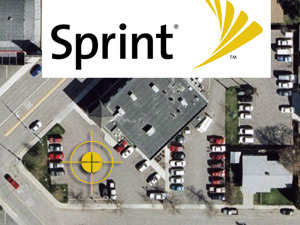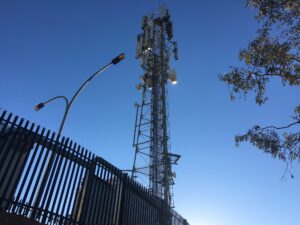Thanks to Sprint, the Cops May Have a GPS Fix on You
Most mobile phones have tiny GPS chips that do things like give directions or route your call to the right city when you dial 911. It turns out that law enforcement can ask phone companies for GPS info that reveals exactly where a phone owner is, and, according to a disturbing piece of audio making the rounds, the cops asked Sprint-Nextell for the locations of customers 8 million times in one year. (continued and video)
Most mobile phones have tiny GPS chips that do things like give directions or route your call to the right city when you dial 911. It turns out that law enforcement can ask phone companies for GPS info that reveals exactly where a phone owner is, and, according to a disturbing piece of audio making the rounds, the cops asked Sprint-Nextell for the locations of customers 8 million times in one year.
What that means exactly is unclear. You can find the recording below. In it, a Sprint corporate security officer (as labeled by the company), says:
[M]y major concern is the volume of requests. We have a lot of things that are automated but that’s just scratching the surface. One of the things, like with our GPS tool. We turned it on the web interface for law enforcement about one year ago last month, and we just passed 8 million requests. So there is no way on earth my team could have handled 8 million requests from law enforcement, just for GPS alone. So the tool has just really caught on fire with law enforcement. They also love that it is extremely inexpensive to operate and easy, so, just the sheer volume of requests they anticipate us automating other features, and I just don’t know how we’ll handle the millions and millions of requests that are going to come in.
Sprint has not revealed how it responded to those requests, but the company has acknowledged receiving them and said in a statement: “The comments made by a Sprint corporate security officer during a recent conference have been taken out of context by this blogger. Specifically, the ‘8 million’ figure, which the blogger highlights in his email and blog post, has been grossly misrepresented.”
Sprint’s take, at least as reported by the Electronic Frontier Foundation, is that just because it got 8 million requests that doesn’t mean it said yes 8 million times. It also doesn’t mean it said no.
We live in a surveillance state and it comes as no surprise to find out that The Man wants to keep tabs on John Doe’s whereabouts — but 8 million requests? Keep in mind that Sprint is only the third-largest carrier in the country.
Part of the problem is that Sprint made it easy to request the information by building an automated Web site.
Here’s the post that sparked the story. The EFF has a much more comprehensive rundown. We first heard about it on Engadget. — PZS
Your support matters…Independent journalism is under threat and overshadowed by heavily funded mainstream media.
You can help level the playing field. Become a member.
Your tax-deductible contribution keeps us digging beneath the headlines to give you thought-provoking, investigative reporting and analysis that unearths what's really happening- without compromise.
Give today to support our courageous, independent journalists.





You need to be a supporter to comment.
There are currently no responses to this article.
Be the first to respond.